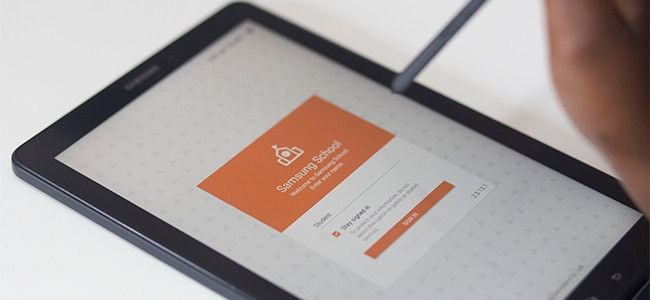
Samsung president and MD Sung Yoon has unveiled the newest smart classroom in South Africa at Michael Zulu primary school in Tsakane, Brakpan.
The Johannesburg school is the 33rd recipient of the company's smart school solutions roll-out in SA. Globally, the technology group says it has supported over 3 000 schools, benefiting 1.4 million students worldwide.
The Samsung smart school initiative works with governments and organisations across the globe to bring education opportunities to underserved communities so that more students can enjoy the full benefits of digital education.
Says Pitso Kekana, Samsung's head of public affairs and corporate citizenship: "As a market leader that drives innovation and develops products according to our clients' needs and wants, we understand that the future of education is in technology.
"With Samsung's classroom technology, educators can get more students engaged, improve participation, and most importantly, make learning fun. In addition to providing the appropriate technologies, Samsung also wants to ensure the teachers at the recipient schools take ownership of the smart classroom and receive adequate training to optimise the use of the facilities."
According to Kekana: "We have rolled out 16 solar-powered Internet classrooms as well as 17 smart classrooms which are built in existing classrooms across Gauteng, North-West, Limpopo, Eastern and Northern Cape, Free State and KwaZulu-Natal.
"The smart school solution has three components. The first is an interactive management solution which allows teachers through an LCD e-board, to deliver content to students, share screens, check student progress, conduct group activities and run tests or instant polls.
"The second is a learning management system which provides educational material and content, such as e-textbooks and learning apps. The third is a student information system which helps teachers track an individual pupil's progress, attendance and other information. We provide both teachers and learners with tables to carry out the programme."
The introduction of e-learning has been making headway into South African classrooms with initiatives such as the Gauteng Department of Education's mandate to deliver modern facilities aimed at encouraging ICT adoption, skills development and improving the quality of education in townships.
The Western Cape Education Department has also embarking on a similar initiative, connecting schools across the province to high-speed broadband via a wide area network.
The department is also providing local area networks and WiFi connectivity for almost every site and alternative connectivity is provided to schools that cannot connect to the fibre-optic grid. Furthermore, the department is also providing technology in schools by equipping smart classrooms and refreshing computer laboratories, providing devices, teacher training and support.
Kekana adds the initiative is ongoing for as long as the facility is fully utilised by the schools. "We believe that technology is a powerful tool for social change, especially when it comes to education. The desired end-result is to introduce technology and make e-learning accessible to learners from previously disadvantaged communities. If there will be any limitation, it will be by available resources."
Share